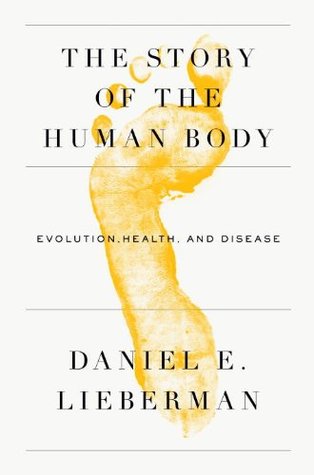 |
| Great job selecting for desirable traits, early farmers! |
Our hunter-gatherer forbears spent up to six hours a day to accumulate enough calories to feed their small bands, and they ate a diet made up largely of fruits, tubers, nuts, seeds, and wild game. As a result they got plenty of physical exercise, fiber, and enough of a chewing workout to make their jaws grow large enough to fit their teeth--all their teeth. They were also seasonal eaters by default and not too subject to widespread famine, since they could always move on elsewhere or put up with less choice offerings, like rabbits having to eat grass after they're already devoured your pea plants.
After millenia and millenia of such a diet, it only makes sense that natural selection favored bodies that processed such food best, and this story would all have had a happy ending, except that humans decided to start sticking around in one place and farming.
I've been reading again.
Really it was the "health and disease" part of this book that interested me, since I've been wondering about all the different diets and nutritional advice out there. It seemed best to listen to an evolutionary biologist to figure out what exactly are we designed to be eating?
The short answer is: not what we're currently eating. Lieberman classifies many of our modern illnesses as "mismatch diseases," meaning, our bodies now encounter foods and environmental circumstances which are different from what our bodies have come to expect after so many gabillion years, so we get sick. Examples of mismatches:
- Obesity. Most of us in the developed world experience an energy surplus of food. Our bodies have been designed to sock away fat, so we have a continuous supply of energy to fuel our giant, energy-sucking brains. But we used to experience lean times as well as bonanzas, and now all we have are bonanzas.
- Type 2 diabetes. Remember that bit about the hunter-gatherer diet? It included hardly any sugar (all pre-agriculture fruits were about the sweetness of a carrot) or simple starches. The carbs we ate had lots of fiber and therefore made our bodies work hard to get energy out of them. Which meant, no sugar spikes in the blood and no insulin spikes and no consequent insulin resistance.
- Myopia! (Lieberman gave many, many disease examples, but I include this one because I always wondered how nearsighted people could've survived the caveman era.) Back in ye old hunter-gatherer days we were mostly outside and never spent hours with our eyes frozen in flexed position, staring at books and screens. It turns out that the teeny muscles holding up the lenses in our eyes get to relax when they look far away, but nowadays we hold the poor muscles clenched up, focusing close up, with sad, contact-lens-wearing results. Among the few hunter-gatherer populations remaining on earth, you don't find many needing lasik.
There's much much more to the book, but the lifestyle advice is familiar and straightforward. Prevent mismatch diseases by avoiding "stimuli that are too much, too little or too new."
- Too much = sugar, simple starches, overly processed foods.
- Too little = fiber and physical activity (walking is just fine--that's what we're designed to do, along with a little running on our arched, springy feet, when necessary)
- Too new = environmental pollutants, weird foods like transfats (our bodies are like, what the heck?), high-heeled shoes, sitting for hours
Our bodies are trying to catch up with the crazy brave new world--there's already some selection happening for people to produce more insulin--but all the changes happened so very fast, evolutionarily speaking, that we aren't going to turn those mismatches into matches anytime soon.
So grab extra of those fruits and vegetables and pastured meats at the Market this week, and park your car in the furthest spot in the lot. Oh, and read this book!


No comments:
Post a Comment
Note: Only a member of this blog may post a comment.